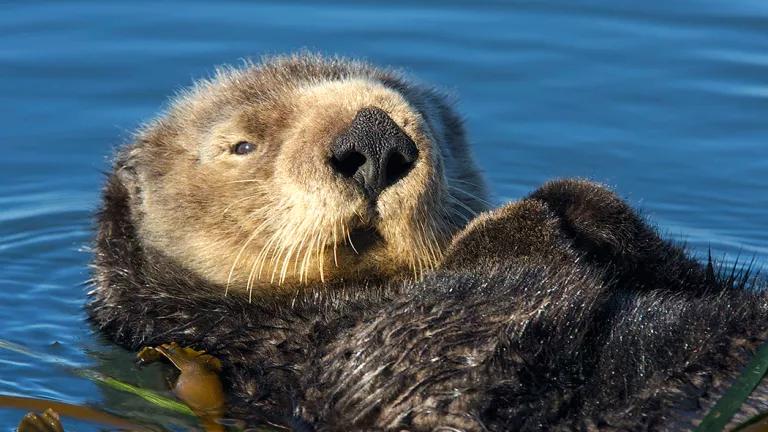
Photo: Gregory Smith/Flickr
As part of an attempt to use critical spending bills to further their anti-environmental agenda, some Republicans in the U.S. House and Senate are trying to gut fundamental laws that protect this country’s wild residents and their natural habitats. The strategy is to attach provisions, called “riders,” to proposed budget legislation for the next fiscal year, in the hopes that those add-ons (which would otherwise be massively unpopular with the American people) will become law with little scrutiny or outcry.
The riders would endanger all forms of environmental protection—clean air, clean water, public health, climate action—but wildlife in particular is in the GOP's sights. Many of these sneaky additions would contribute to the decline and possible extinction of iconic North American species, as well as wildlife around the world.
President Obama can use his executive power to veto these attacks, but it would be better if they never even reach his desk—especially when attached to critical budget measures. A standoff over spending bills this fall (the fiscal year expires October 1) could trigger a government shutdown. The last one, in 2013, cost the U.S. economy $24 billion.
Here’s a sampling of the species at risk in the upcoming budget battles.
Sea Otters
A GOP provision would allow the U.S. Navy to ignore existing laws that protect marine mammals, leaving the military free to conduct activities that could potentially kill or injure protected populations off two Southern California islands.
Migratory Birds

Enforcement of the Migratory Bird Treaty Act, a conservation law in place since 1918, would be prohibited. The law protects more than 800 species, from the singing eastern bluebird to the seafaring blue-footed booby to the burrowing owl.
Elephants

The Obama administration’s past, current, and future efforts to restrict the trade of ivory would be blocked, and elephants would face even more danger from poachers.
Sage Grouse

Three separate measures would block the greater sage grouse and Gunnison sage grouse—two iconic Western birds eking out existence on ever-dwindling habitat—from receiving any protections under the Endangered Species Act.
Lesser Prairie Chicken

Three of the GOP's proposals would take this threatened member of the grouse family off the Endangered Species List; one of the three bars the bird from receiving protections for at least six years.
American Burying Beetle

Because it sometimes crawls in the way of agriculture, transportation, and pipeline projects, this colorful insect, and crucial member of the ecosystem (it eats carrion and is known as "nature's gravedigger"), would be immediately and permanently removed from protection under the Endangered Species Act.
Gray Wolves

Separate House and Senate measures (containing identical language) call for taking gray wolves in the Great Lakes and Wyoming off the Endangered Species List. And another House measure would thwart recovery efforts in Washington, Oregon, and Utah, where these predators are just beginning to rebound.
Northern Long-Eared Bat

An existing rule that eliminates crucial protections for this species, which is battling against both habitat destruction and the dreaded white-nose syndrome, would be expanded and solidified.
West Coast Salmon

Funding for the deliveries of much-needed water to the depleted Trinity and Klamath rivers would be blocked, making it even harder for these floundering fish to survive.
Sonoran Desert Tortoise

A candidate for endangered species status since 2010, the tortoise would be prevented from receiving any federal protections.
Rabbitsfoot and Neosho Mussels

Degraded riverine habitat has put these two freshwater mussels on the Endangered Species List, but now a rider seeks to block all federal funding for their protection and recovery.
Preble’s Meadow Jumping Mouse

This threatened (and much maligned) little mouse wouldn’t receive any federal money for its recovery out West, and important programs seeking to protect its habitat would be eliminated.
This article was originally published on onEarth, which is no longer in publication. onEarth was founded in 1979 as the Amicus Journal, an independent magazine of thought and opinion on the environment. All opinions expressed are those of the authors and do not necessarily reflect the policies or positions of NRDC. This article is available for online republication by news media outlets or nonprofits under these conditions: The writer(s) must be credited with a byline; you must note prominently that the article was originally published by NRDC.org and link to the original; the article cannot be edited (beyond simple things such grammar); you can’t resell the article in any form or grant republishing rights to other outlets; you can’t republish our material wholesale or automatically—you need to select articles individually; you can’t republish the photos or graphics on our site without specific permission; you should drop us a note to let us know when you’ve used one of our articles.

Protecting Biodiversity Means Saving the Bogs (and Peatlands, Swamps, Marshes, Fens…)
How to Make an Effective Public Comment
From Dams to DAPL, the Army Corps’ Culture of Disdain for Indigenous Communities Must End